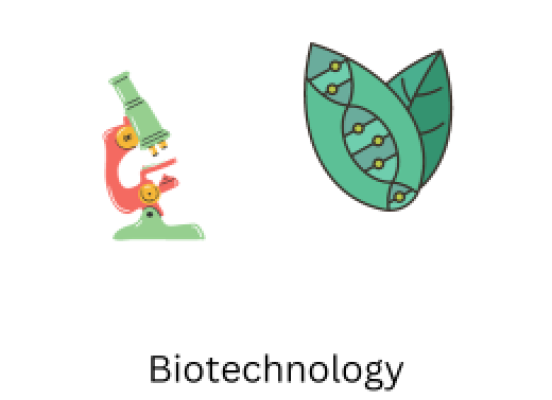

Biotechnology: Bridging Science and Innovation
Biotechnology, a word that sounds straight out of a science fiction novel, has rapidly transformed from a buzzword into a powerful and influential field. It is the marriage of biology and technology, where living organisms and their molecular components are harnessed to develop new products, solve problems, and improve our quality of life. In this essay, we will delve into the world of biotechnology, exploring its history, applications, and potential impacts on society and the environment.
Historical Perspective
The roots of biotechnology can be traced back to ancient civilizations, where fermentation was used to produce food and beverages like bread and beer. However, the modern era of biotechnology began in the mid-20th century with the discovery of the DNA double helix structure by James Watson and Francis Crick. This monumental breakthrough laid the foundation for understanding genetic information and how it could be manipulated.
The 1970s marked the birth of genetic engineering, with the first successful gene splicing experiments conducted by Herbert Boyer and Stanley Cohen. This breakthrough allowed for the transfer of genes between different organisms, and it gave birth to the biotech industry we know today. Since then, biotechnology has rapidly evolved, and its applications have become more diverse and sophisticated.
Applications of Biotechnology
Biotechnology has infiltrated numerous sectors, leaving an indelible mark on agriculture, medicine, environmental conservation, and industry.
1. Medicine and Healthcare:
2. Agriculture:
3. Environmental Conservation:
4. Industrial Biotechnology:
Ethical and Social Implications
While biotechnology has the potential to solve many of society's problems, it also raises ethical concerns. Genetic modification of organisms, especially humans, sparks heated debates. The use of genetically modified crops and their impact on ecosystems and human health is another contentious issue. As the field continues to evolve, it is imperative to establish rigorous ethical and safety standards to ensure that biotechnological advances benefit society as a whole.
Challenges and Future Prospects
Biotechnology is not without its challenges. The exponential growth of the biotech industry has led to concerns about the release of genetically modified organisms into the environment, with unpredictable consequences. Furthermore, there is a growing need for robust regulations to address issues of intellectual property, informed consent, and biosecurity.
The field is also at the forefront of addressing global challenges. Biotechnology offers solutions to climate change by developing carbon-neutral biofuels and sequestering carbon through plant genetic engineering. It plays a crucial role in the development of novel vaccines and treatments, as demonstrated during the COVID-19 pandemic.
In the future, biotechnology is likely to merge with other fields, such as artificial intelligence and nanotechnology, to create innovative solutions for complex problems. The convergence of these technologies promises to unlock new possibilities in medicine, agriculture, and materials science.
Conclusion
Biotechnology has come a long way since the early days of fermentation, evolving into a multidisciplinary field with profound implications for our world. Its applications in medicine, agriculture, and industry continue to shape our lives in unprecedented ways. However, as the power of biotechnology grows, so do the ethical and safety concerns. It is imperative that we tread carefully, striking a balance between innovation and responsible stewardship to ensure that biotechnology remains a force for good in the years to come.